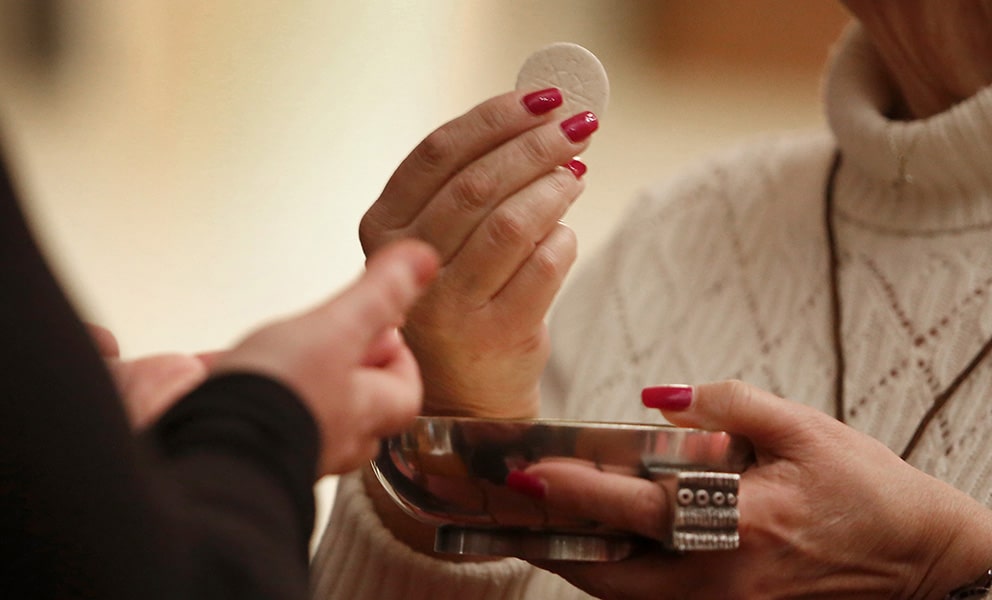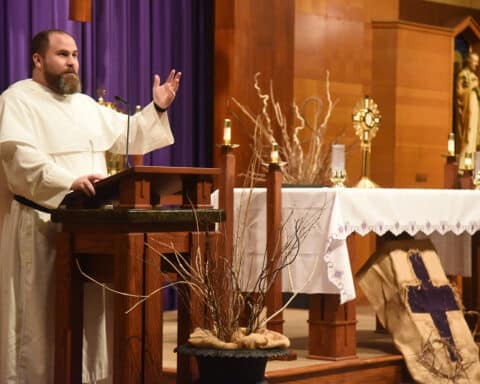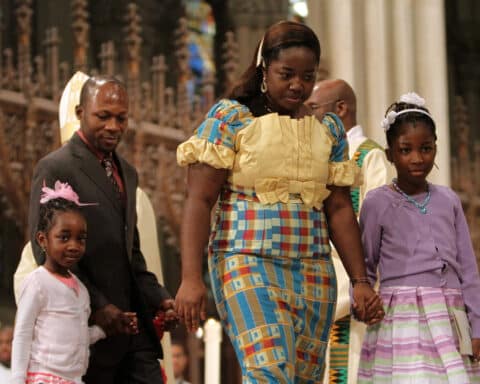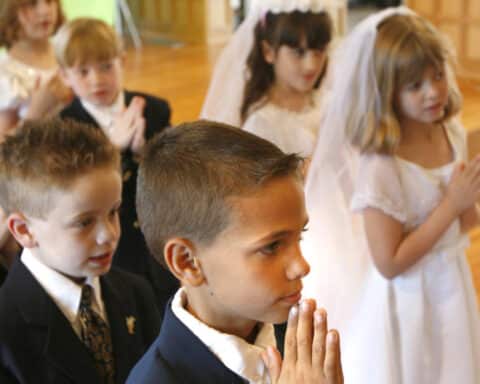
— Name, location withheld
Answer: In cannibalism, certain human beings kill another human being and then eat the dead flesh. Such a practice is both murderous and abhorrent. But the Eucharist is nothing like this. First, we are not eating the dead flesh of a dead human being. We are receiving the living Christ, whole and entire, body, blood, soul and divinity. Further, this living and glorified Lord freely offers himself to us. He said: “No one takes my life from me. I have power to lay it down, and power to take it up again” (Jn 10:18). Our receiving of him harms him in no way. Thus there is simply no relationship to cannibalism. It is true that we partake of the body and blood of the Lord, but we must recall that he is glorified. He cannot be killed, dismembered, roasted and eaten.
As to his true and not just symbolic presence, Jesus himself affirms: “I am the bread of life. Your ancestors ate the manna in the desert, but they died; this is the bread that comes down from heaven so that one may eat it and not die. I am the living bread that came down from heaven; whoever eats this bread will live forever; and the bread that I will give is my flesh for the life of the world” (Jn 6:49-51).
When the Jews object, like your Christian friend does, Jesus does not back down — he doubles down. Scripture says: “The Jews quarreled among themselves, saying, ‘How can this man give us [his] flesh to eat?’ Jesus said to them, ‘Amen, amen, I say to you, unless you eat the flesh of the Son of Man and drink his blood, you do not have life within you. Whoever eats my flesh and drinks my blood has eternal life, and I will raise him on the last day. For my flesh is true food, and my blood is true drink'” (Jn 6:52-55). At the Last Supper Jesus also says: “Take and eat; this is my body. … Drink from it, all of you, for this is my blood of the covenant” (Mt 26:26-28).
Thus it is pretty hard to insist on a merely symbolic presence as your friend does. She has to ignore a lot of Scripture to do so. Add to that the consistent teaching of the early Church Fathers and her position is also novel.
We are not cannibals. We receive a living and glorious Lord who freely offers himself to us for our nourishment so that we can become the one we receive. He is very much alive and very desirous that we receive him.
Sacrament of Reconciliation
Question: Can non-Catholics receive the Sacrament of Reconciliation?
— Paul VanHoudt, Erie, Colorado
Answer: No, not generally. Of course a priest can hear anyone’s confession of sins, but he can only grant absolution to baptized Catholics. There are some rare exceptions. In danger of death, a non-Catholic can request that a priest grant him absolution if he cannot speak to a member of his own clergy and expresses belief in the power of priests to forgive sin.
Part of the reason that a priest cannot grant absolution to a non-Catholic is that, to some degree, he does not have juridical authority over that person since the person has not granted it. Juridical authority does not simply mean that the person is asking for absolution but means that the person has freely submitted himself fully to the authority of the Church, which is the Body of Christ. When a baptized non-Catholic enters the Church, they declare the following: “I believe and profess all that the holy Catholic Church believes, teaches and professes to be revealed by God.” And this profession of faith unlocks the juridical power of the priest to confer absolution and celebrate the other sacraments on their behalf — hence faith in not merely in this or that teaching, but in the whole deposit of faith. This profession is what makes one apt to receive the sacraments validly and licitly.
Msgr. Charles Pope is the pastor of Holy Comforter-St. Cyprian in Washington, D.C., and writes for the Archdiocese of Washington, D.C. at blog.adw.org. Send questions to msgrpope@osv.com.





